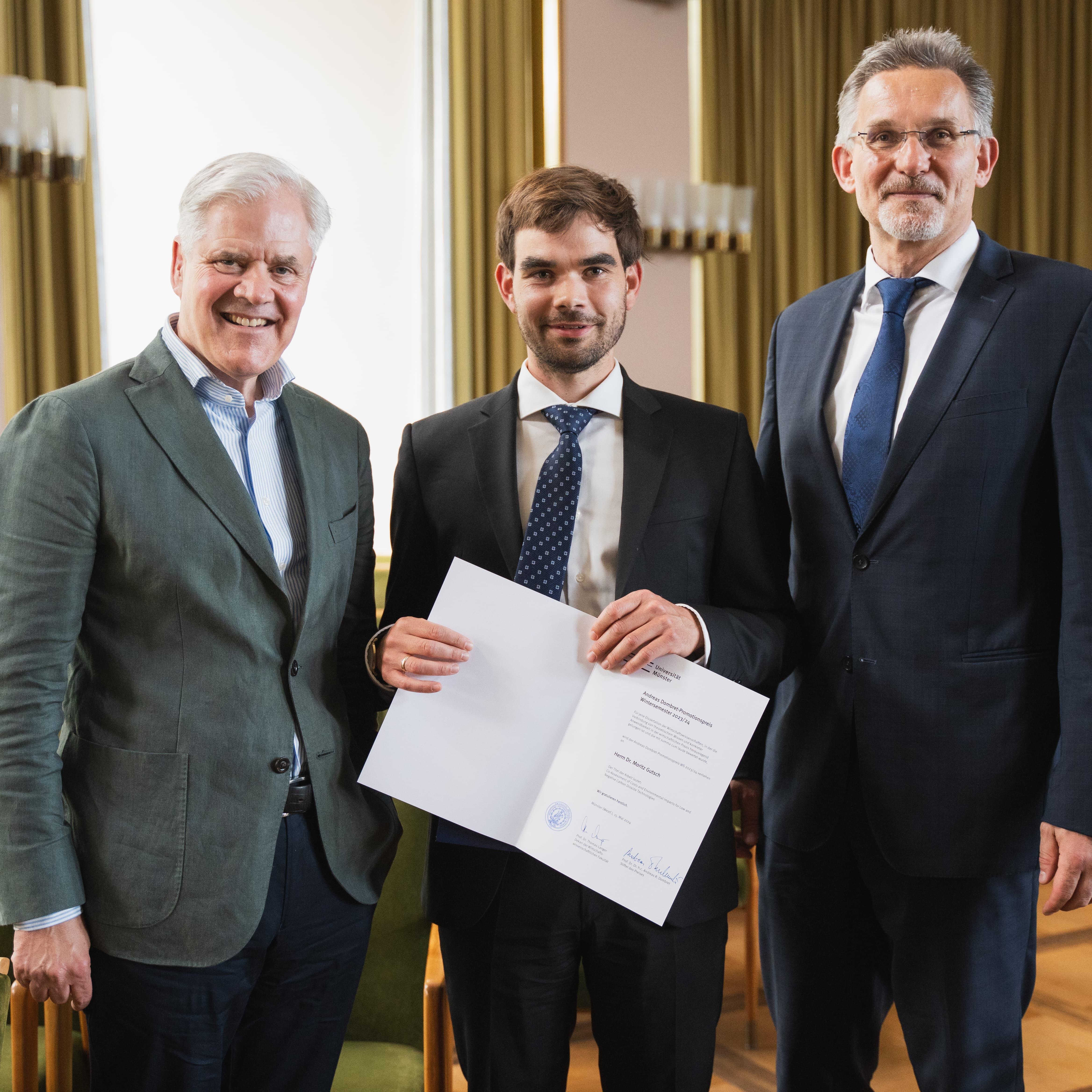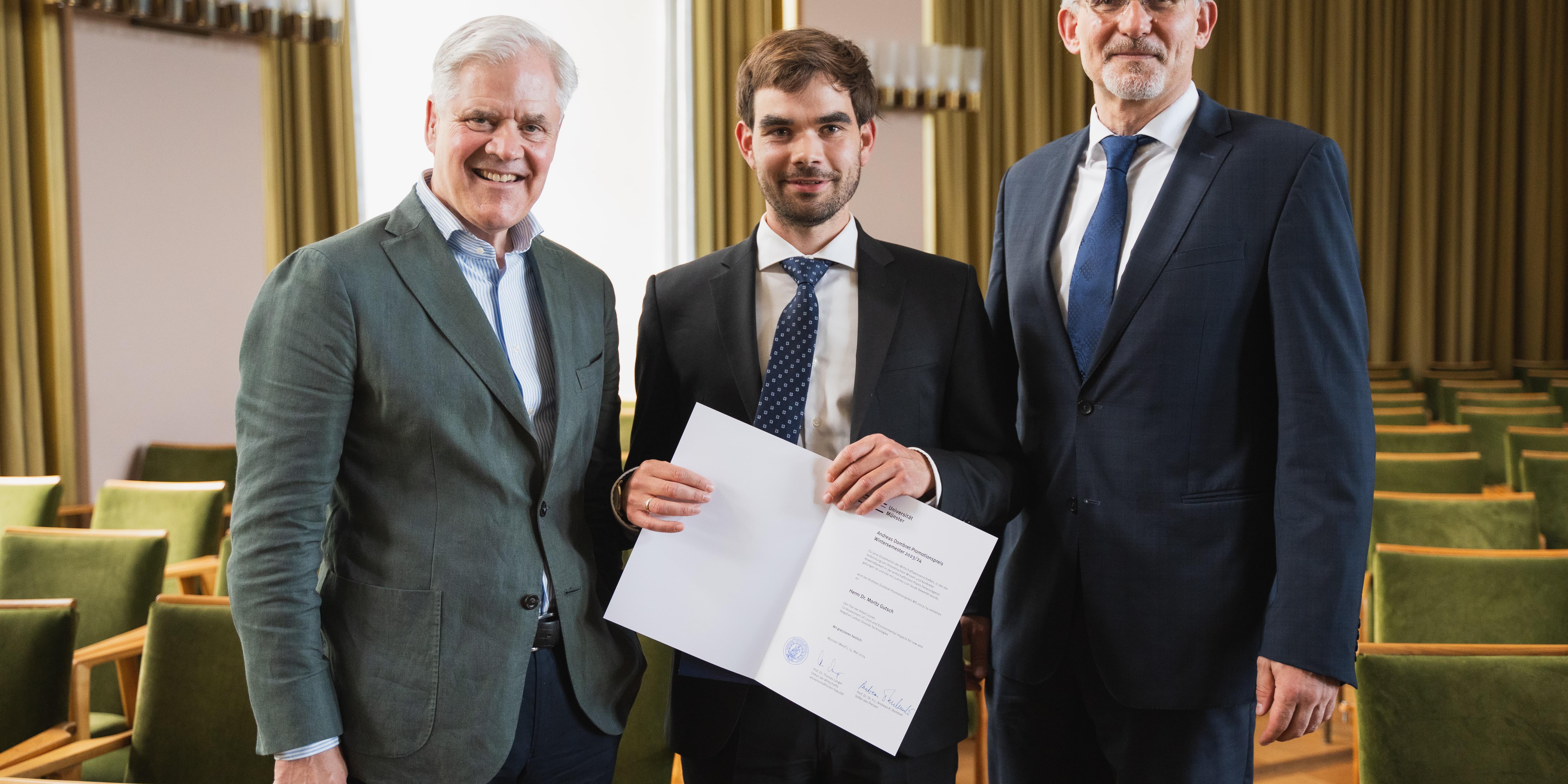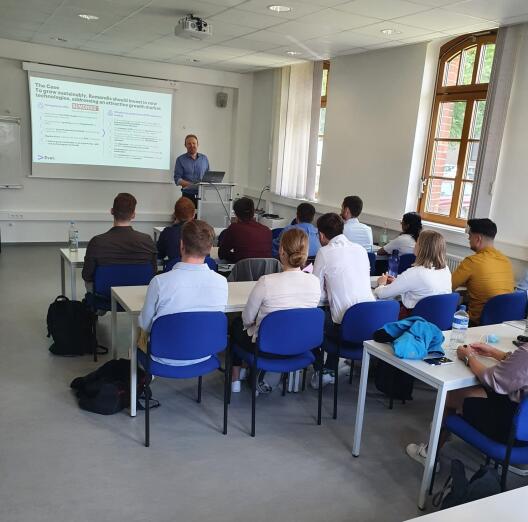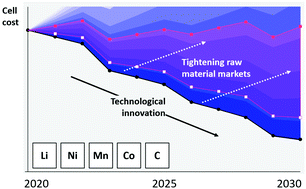



The Institute of Business Administration at the Department of Chemistry and Pharmacy at the University of Münster, Germany, is seeking to fill the position of a Doctoral Research Associate (Wissenschaftliche*r Mitarbeiter*in, salary level E 13 TV-L, 65%) at the earliest possible date. We are offering a part-time position (65%) on a fixed-term basis for three years. Full-time employees are required to teach 4 hours per week during the semester.


The Business Chemistry Group at the University of Münster is seeking to fill a research assistant position (E 13 TV-L) with 65% of the regular weekly working hours as soon as possible. The position is initially limited to 3 years, but can be extended in the context of a doctorate. The full-time teaching commitment is 4 SWS.


The Business Chemistry Group at the University of Münster is seeking to fill a research assistant position (E 13 TV-L) with 65% of the regular weekly working hours as soon as possible. The position is initially limited to 3 years, but can be extended in the context of a doctorate. The full-time teaching commitment is 4 SWS.
The Business Chemistry Group at the University of Münster is seeking to fill a research assistant position (E 13 TV-L) with 65% of the regular weekly working hours in the third-party funded project BEMA.On. The position is initially limited to 3 years, but can be extended in the context of a doctorate. The full-time teaching commitment is 4 SWS.










Twice we had the pleasure to welcome Dr. Nils Dülfer, Managing Director of IMP³ROVE, the innovation unit of the global, American management consultancy Kearney, as a virtual speaker. Dr. Dülfer did us the honor on the one hand as a speaker in front of our master students of business chemistry on the 13th of May and on the other hand as a guest speaker in the context of the doctoral seminar "Innovation management in research-intensive industries" on the 25th of May 2022.

On the 20th of May 2022 we were pleased to welcome Dr. Felix Schröder and Dr. Kai Künnemann from the global management and strategy consultancy Accenture to our institute. After a short introduction into the daily work routine in the consulting industry and the work at Accenture, the two strategists organised a workshop on the topic "Circular Economy - The Recycling of Polystyrene" with the students of business chemistry. In this fictitious case study, the students had to prove their skills as consultants for a waste management company. Finally, all results were presented and discussed in plenary.
We would like to thank Dr. Schröder and Dr. Künnemann for the exciting insights behind the scenes of the consulting company with over 600,000 employees and the both educational and fun workshop!

On the 18th of May 2022, we had the pleasure of welcoming Dr. Stephan Göttke, Chief Business Development Officer of BÜFA Holding, to our doctoral seminar on "Innovation Management in Research-Intensive Industries". Mr Göttke himself completed his doctorate in chemistry at the WWU about 20 years ago and, after a number of exciting stations in industrial and academic organisations, finally joined the medium-sized chemical company from Oldenburg in Lower Saxony in 2017. For the BÜFA Group, sustainability and innovative strength are of great relevance in its three business segments "Chemicals", "Cleaning" and "Composites", which is why Mr. Göttke gave the doctoral students practical insights into sustainability and innovation in the chemical industry in his lecture.
The agenda therefore included exciting topics such as the path of sustainability in the chemical industry, the integration of "Sustainable Development Goals (SDG)" in sustainability reporting or also sustainability in today's world, where both a reduction of the CO2 balance and bio-based chemicals as alternatives for oil- and gas-based substances would provide interesting starting points for a targeted climate neutrality, explained Dr. Göttke.
In order to achieve the climate goals, said Dr. Göttke, BÜFA always relies on innovative approaches in order to contribute to the sustainable transformation of the chemical industry by means of many partners in a strong network.
We thank Mr. Göttke for the inspiring insights into the business development of a medium-sized company in the chemical industry in family hands towards a sustainable innovative future and wish him and the BÜFA Group all the best for the future!

The 4th International Workshop on Innovation and Production Management in the Process Industries (IPM2022) took place at Industriepark Höchst from 12-13 May. Together with ZIN, the Department of NawiT and other partners, a forum was created for scientists and practitioners concerned with the transformation of the process industries to CO2 neutrality.
Over two days, participants from five countries discussed the challenges of the transformation within the framework of the project Process4Sustainability: Cluster for a climate-neutral process industry in Hesse. Prof. Dr. Ludo Diels (SPIRE), Dr. Florian Ausfelder, Prof. Dr. Thomas Bayer, Prof. Dr. Stefan Lechtenböhmer and Angelique Terrien shared their expertise from research and practice. The workshop was rounded off by roundtable discussions on the topics of recycling, bioeconomy, sustainability management, digitalisation and energy transition.
We would like to thank all speakers and participants and give all interested parties the opportunity to read the summary of the workshop here.

As an Institute of Business Administration at the department of Chemistry and Pharmacy, profitability analyses of current chemical technologies and trends are a core competence of the institute. Thus, it is evident that the battery team of the IfbM intensively deals with a cost-efficient design of the energy transition in order to make an essential contribution to a climate-friendly, economically relevant technology development. In this context, the cost reduction of battery materials is considered an important prerequisite for an economically viable transition to a climate-neutral society. Although market analysts are concerned about rising raw material prices, all forecast studies assume that battery costs will decrease in the future. The respective authors base their cost estimates on past material price trends rather than explicit technology roadmaps.
In this recently published study by researchers at the Institute of Business Management, both future material price expectations and cost reductions due to technological innovations are taken into account. Therefore, based on market expectations and expert knowledge, a roadmap for automotive battery technology and its production process until 2030 is defined. This roadmap is translated into annual cell costs using two engineering-based bottom-up material and process cost models, with a projected decrease from over $100 to about $70 kW h-1 in 2030 at current raw material prices. Simulations of analysts' price expectations for critical materials show that this decline could flatten significantly or, in the most pessimistic case, disappear altogether. A particularly high risk to cell costs is associated with nickel prices, and implications for research and industry to mitigate this risk are outlined.
The study was published in the March issue of the prestigious scientific journal of the Royal Society of Chemistry and is available online at the following link: https://pubs.rsc.org/en/content/articlelanding/2022/ya/d1ya00052g
As part of their scientific publication, the research group was even awarded the cover of the Journal of Energy Advances, so that the IfbM can now proudly present its first cover in a chemistry context.